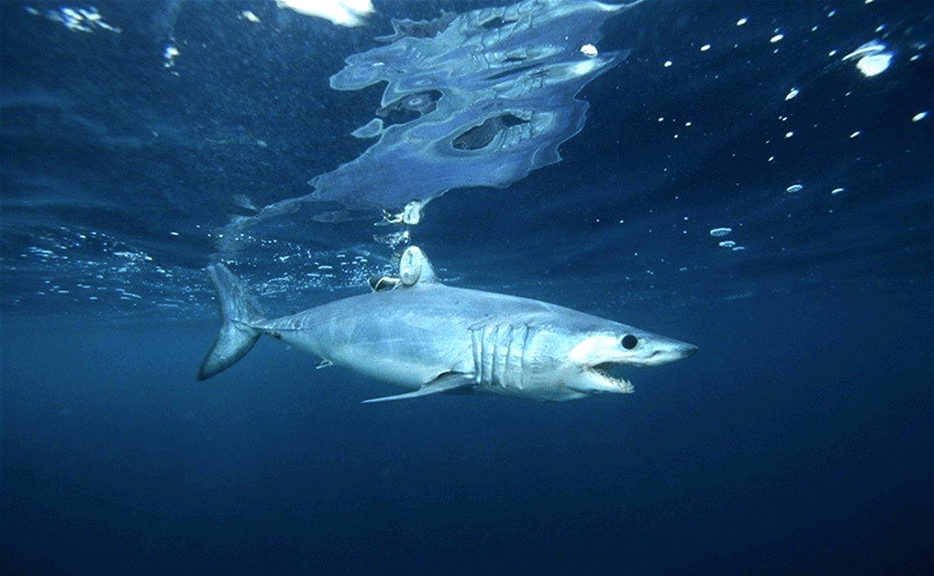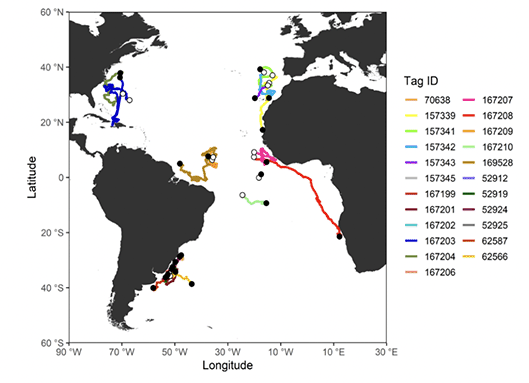A shortfin mako shark (Photo courtesy of NMFS/Southwest Fisheries Science Center)
Environmentalists are disappointed in NOAA’s decision to deny federal protections to the Atlantic shortfin mako shark.
The shark was once abundant off the South Carolina coast.
“In 2017, a stock assessment found that shortfin makos in the Atlantic are overfished,” said Matt Perkinson, a Saltwater Fishing Outreach Coordinator at the S.C. Department of Natural Resources. “There aren’t enough reproductive age adults in the population, and more fish are being removed from the population than are being added back.”
Five years later, the shortfin mako shark’s population is still declining.
“The federal government has ignored the shortfin mako shark’s steep population decline in the North Atlantic, and scientists expect that the shark’s numbers will get even worse in the next decade,” said Catherine Kilduff, an attorney at the Center for Biological Diversity, located in Arizona.
Shark fishing for sport is popular on the coasts of South Carolina, Perkinson said.
“Of the sharks that are legal to keep, many are caught and released voluntarily, just as many other species of fish are caught and released, Perkinson said. “For example, around 90% of red drums caught in South Carolina are released after capture.”
In January 2021, wildlife advocates and environmentalists based in Washington, D.C., sent a request to the National Oceanic and Atmospheric Administration for the shortfin mako shark to be listed as a federally protected species. In November 2022 — almost two years later — NOAA decided the shark did not meet its qualifications for endangered species.
“We have determined the shortfin mako shark is not presently in danger of extinction, nor is it likely to become so in the foreseeable future throughout all or a significant portion of its range,” the National Oceanic and Atmospheric Administration said in its statement.
The news was especially frustrating for environmentalists because NOAA’s own data predicts the shark won’t rebound in population until 2035. The data showed the population will continue to decline by 40 to 60 percent.
To help the shark rebound, NOAA restricted fishermen and fisheries from harvesting the shortfin mako. This decision will be reviewed again in 2023.
“Unfortunately, fisheries managers’ goals are different because they are maximizing economic returns,” Kilduff said. “The economics often lead to decisions in which depleted populations stay very low for a very long time. This hurts not only the species – like the shortfin mako shark – but also the health of our oceans.
But NOAA said that while the shortfin mako population is down, the species is adaptable and at low risk of extinction. It also note that the number of shortfin makos in the Pacific Ocean are increasing.
Opponents counter that the shortfin mako have low reproduction rates and are victims of overfishing, Kilduff said. Even if all fishing stopped today, it would take 50 years for the species to recover in the North Atlantic, she said.
“The shortfin mako shark is the world’s fastest-swimming shark, but it can’t outrace the threat of extinction,” said Jane Davenport, senior attorney at Defenders of Wildlife.



